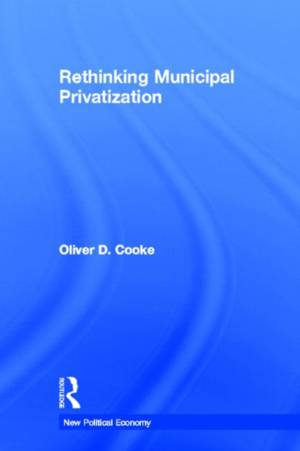
- Afhalen na 1 uur in een winkel met voorraad
- Gratis thuislevering in België vanaf € 30
- Ruim aanbod met 7 miljoen producten
- Afhalen na 1 uur in een winkel met voorraad
- Gratis thuislevering in België vanaf € 30
- Ruim aanbod met 7 miljoen producten
Omschrijving
This book examines one of the most high-profile municipal privatizations--the privatization of New York City's Central Park. The fiscal crisis of the 1970s established the political and cultural opening for privatizations, which were justified on the basis of increasing efficiency. However, as Cooke demonstrates, these justifications were deliberately blind to the social and economic implication of privatization. This fascinating account moves beyond the hackneyed pro- versus anti-privatization debate by reconceptualizing the park's privatization as an ensemble of contradictory class effects. It also highlights the immense theoretical and policy space for radically reconsidering and rethinking privatization processes in both the municipal and global contexts.
Specificaties
Betrokkenen
- Auteur(s):
- Uitgeverij:
Inhoud
- Aantal bladzijden:
- 210
- Taal:
- Engels
- Reeks:
Eigenschappen
- Productcode (EAN):
- 9780415543118
- Verschijningsdatum:
- 14/12/2012
- Uitvoering:
- Paperback
- Formaat:
- Trade paperback (VS)
- Afmetingen:
- 152 mm x 229 mm
- Gewicht:
- 290 g

Alleen bij Standaard Boekhandel
Beoordelingen
We publiceren alleen reviews die voldoen aan de voorwaarden voor reviews. Bekijk onze voorwaarden voor reviews.











